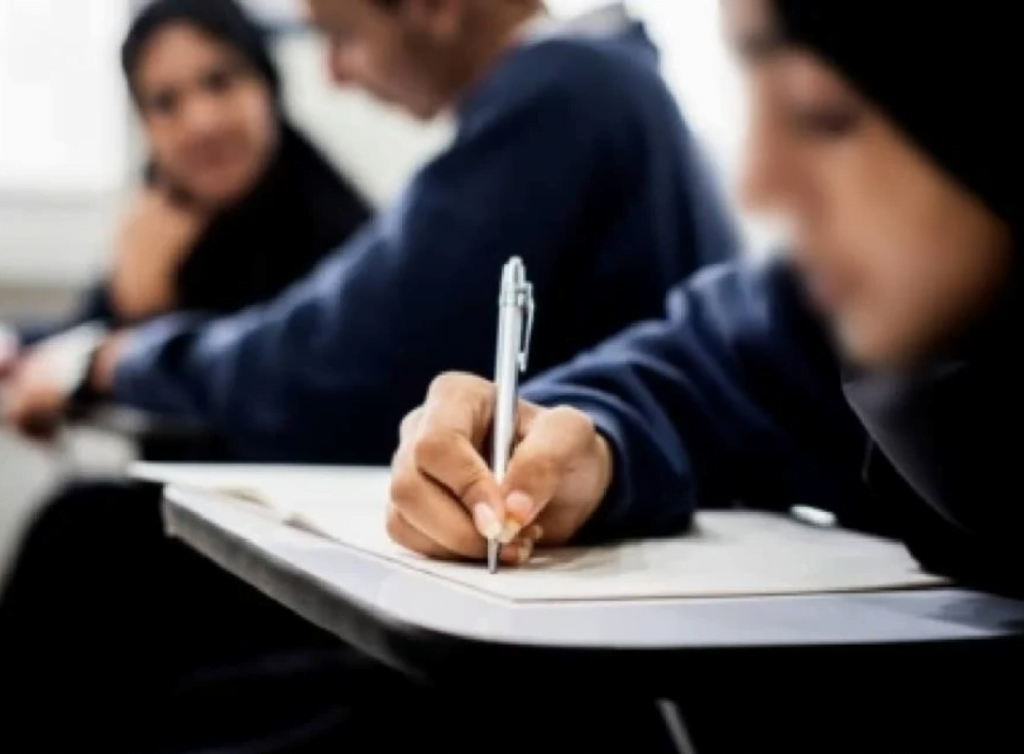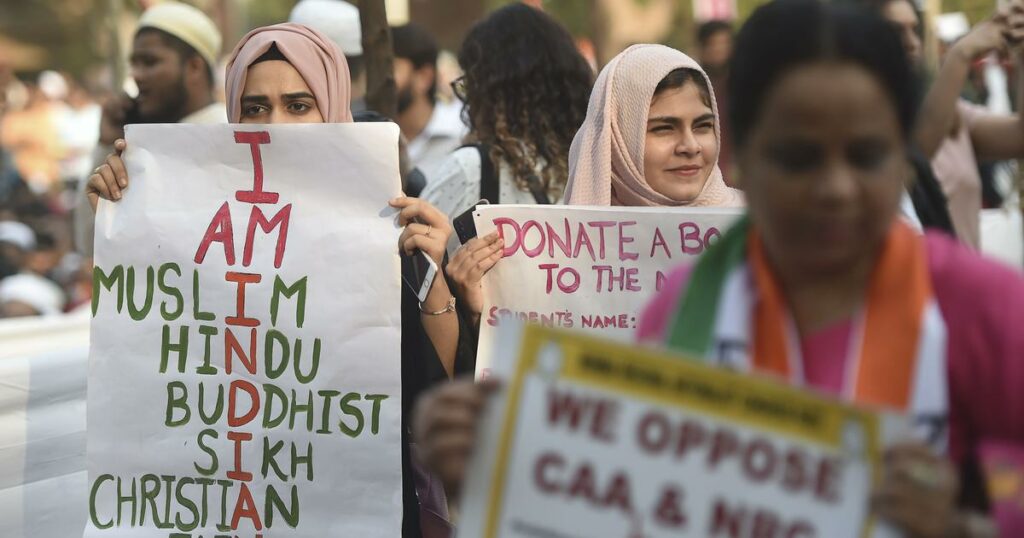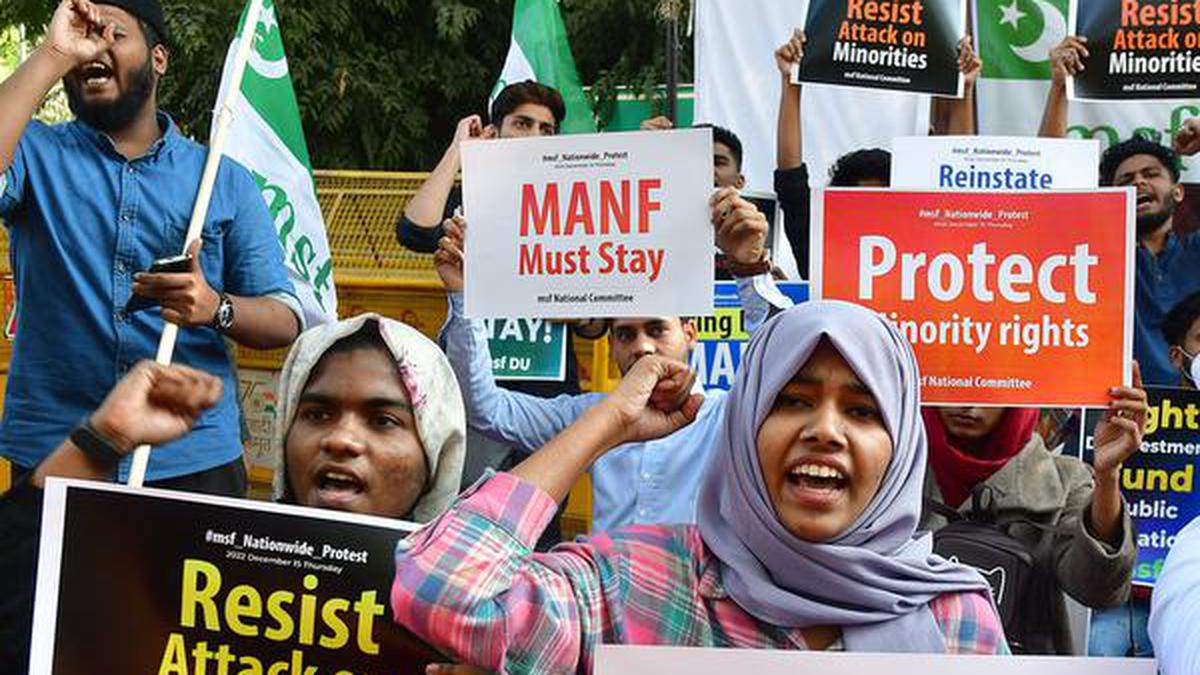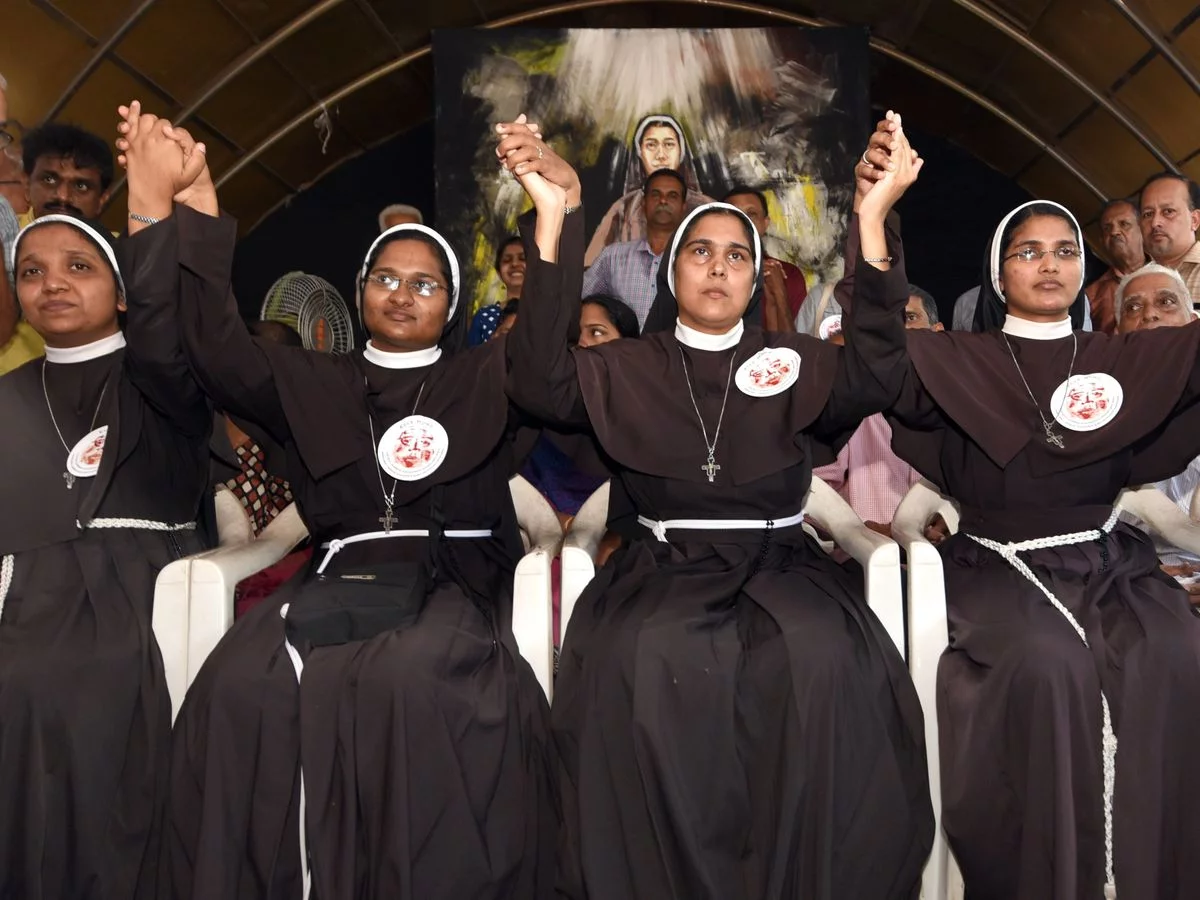After the controversy and subsequent ban on hijab in educational institutions in Karnataka in 2022, the rights of marginalised communities to education have come under attack yet again from the Hindutva right-wing government. On 7th February 2024, the Ministry of Minority Affairs (MoMA) abruptly ordered the Maulana Azad Education Foundation to close down “at the earliest,” without offering any explanation for this decision.
Named after the Indian freedom activist, scholar and the first Education Minister of independent India, Maulana Abul Kalam Azad, the Maulana Azad Education Foundation is a “voluntary, non-political, non-profit making social service organization, established to promote education amongst educationally backward sections of the Society,” according to their website. It is an organisation that uplifts students from the six recognised marginalised communities (Muslims, Christians, Sikhs, Buddhists, Parsis and Jains) through scholarships, schemes and funds to support their education and livelihoods.
Founded by the Ministry of Minority Affairs, under the Societies Registration Act, 1860, on July 6, 1989, the Foundation has brought about various schemes for minorities such as the Begum Hazrat Mahal National Scholarship for minority girl students and the Gharib Nawaz Employment Scheme for Minorities to help youth from minority communities through skill-based employment.
Was it a sudden or a pre-planned move?
However, in the 2022-23 Union Budget, funds allocated to the Maulana Azad Education Foundation (MAEF) saw a shocking reduction of over 99 per cent. According to the New Indian Express, in stark contrast to the previous year’s budget for 2021-2022, where MAEF received Rs 90 crore, the current budget allocated a mere 1 lakh (0.01 crore) to the foundation.

On the other hand, fund allocation was increased by Rs 209.73 crore in the 2022-23 budget for The Ministry of Minority Affairs. As per the report from The Indian Express, over 1000 girl students who had applied for the Begum Hazrat Mahal Scholarship missed out on receiving their scholarships in the same year. The girl students did not receive the scholarship because of “pending verification” by the nodal officers of their districts, which was the case until the time the scholarship lapsed in 2021-2022. This information became public only after a petitioner filed an RTI in Gujarat’s Jamnagar.
In 2022, two important scholarships for minority community members, which include the pre-matric scholarship and the Maulana Azad National Fellowship were cancelled by the government, leaving several students unsupported and without a means for education. The ministry justified the cancellation of the pre-matric scholarship, providing a meagre sum of support to minority students from classes 1 – 8, as a move that was to bring the Ministry of Minority Affairs on par with the Ministry of Social Justice, since other pre-matric scholarships were only for classes 9-10.
It is important to note here that the BJP government has opposed provisions for minorities in the past too. When pre-matric scholarships were started in the year 2008, the Gujarat government, led by Narendra Modi, the then Chief Minister of the state, challenged it in court arguing that the centrally administered scholarship was a scheme based on religion and claimed that the state could not be obligated by the Centre to enforce such a program, reports by The Wire.
The Mooknayak recently reported that nearly 50 per cent of the funds allotted to minority educational programs have remained unused. According to The Mooknayak, an enquiry under the Right to Information Act was filed by activist MA Akram and concerning data was found in the utilisation of funds designated for the fee reimbursement scheme where despite an allocation of Rs 305.8 crore for these specific purposes, a substantial sum of Rs 174.23 crore was not utilised. The Centre for Educational Development of Minorities, which is slated to provide coaching for competitive examinations, too, had not used more than half of its allocated funds.
What does the MoMA directive to MAEF say?
According to the directive released on 7th February, The Ministry of Minority Affairs ordered the transfer of surplus funds to the Consolidated Fund of India. The Maulana Azad Education Foundation had assets worth Rs 1073.26 crore as of November 30, 2023, as well as liabilities which amount to Rs 403.55 crore.
The order issued by MoMA read, “MAEF is instructed to carry out the closure process at the earliest and submit the copy of its closure certificates issued by Registrar of Societies, Government of Delhi, on completion of all procedures, as per extant laws.”
According to the mandate, the assets are to be transferred to the Central Wakf Council, which will also take on the administrative responsibility for the employees affected by the directive.
Following the order for MAEF’s closure, social and women’s rights activist and Padma Shri awardee Dr Syeda Saiyidain Hameed and others, represented by Advocate Anand Grover and Fuzail Ahmad Ayyubi have filed a petition challenging the decision in response to which, the Centre has been asked by the Delhi High Court to file an affidavit.
Nothing but a calculated blow to the right to education for all
The timing of the closure order, just before the 2024 Local Sabha Elections is reflexive of the oppressive Hindutva politics of the current government which has historically been known to undermine the rights of marginalised communities to education and self-expression. The fundamental right to education is a constitutional right which is crucial for the growth of our nation.

Access to education for marginalised communities, especially the Muslim community, is of dire importance as according to the last Census in 2011, the literacy rate of the minority communities namely Christians, Jains, Sikhs and Buddhists is higher than the National Average of 72.98 per cent, Muslims are still disadvantaged with a literacy rate of 68.54 per cent.
The closure of the MAEF, an organisation that was instrumental in uplifting the condition of not only Muslims, but other minority communities too, seems to be a calculated move by the ruling dispensation before the elections.
Education is an important tool which helps one become cognisant of their rights and demand what they deserve, without fear or shame. It has been able to empower and build up a community to be strong, resilient and determined, as a result of which, access to it has been historically denied by autocratic powers in order to maintain the status quo. These fascist regimes believe as long as marginalised communities, especially Muslims, remain disenfranchised due to lack of education, they will be easier to manipulate and control, as a vilified ‘other.’
In a poignant quote as the tyrant Hirak Raja in Satyajit Ray’s film Hirak Raja r Deshe, Utpal Dutt says, “The more they learn, the less they fear.” Referring to education as the great liberator of human minds, that allows humans to ask questions and critique power fearlessly, Hirak Raja, in Ray’s film bans education and outlaws the schoolmaster Udayan Pandit.
The recent incidents yet again testify to the fear autocratic powers have for education and reiterate the utmost importance of education for communities which have faced historic oppression and marginalisation. The efforts by the government to shut down MAEF are a manifestation of this age-old fear of critical thinking and empowering education that is shared by all fascist regimes throughout history.
Husnara Salim, the grandniece of Maulana Abul Kalam Azad said to The Quint after the closure order was issued, “Maulana Azad used to believe that religion are politics are different aspects and should be kept separate. But again, it’s an individual’s perception. There needs to be a collective fight to preserve Maulana Azad’s legacy and his efforts to education such as how Maulana Azad Foundation stood.”
About the author(s)
Ananya Ray has completed her Masters in English from Jadavpur University, Kolkata, India. A published poet, intersectional activist and academic author, she has a keen interest in gender, politics and Postcolonialism.





